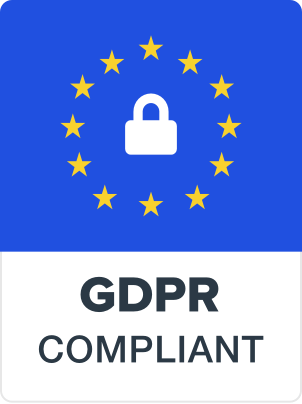Revolutionizing Auditing Processes with Modern Apps and Workflow Management Systems

June 10 , 2023
In today’s fast-paced business landscape, the auditing process has undergone significant transformations with the advent of modern technology. Auditors across various industries, including healthcare, logistics, manufacturing, retail, construction, and fitness, are now leveraging advanced audit apps and workflow management systems to streamline their operations and enhance overall efficiency. These innovative tools enable auditors to conduct comprehensive audits, generate detailed reports, and manage workflows seamlessly. This weblog explores the impact of auditor apps and workflow management systems in different sectors, highlighting their benefits, functionalities, and the positive outcomes they deliver.
Auditor Apps: Enhancing Efficiency and Accuracy
The emergence of dedicated auditor apps has revolutionized the auditing landscape, providing auditors with powerful tools to perform their tasks more efficiently and accurately.
-
Healthcare Industry and Audit Apps

In the healthcare industry, for instance, an audit app for healthcare providers enables auditors to conduct compliance audits, track patient records, and ensure adherence to industry standards and regulations. These apps offer intuitive interfaces, allowing auditors to navigate through complex data effortlessly and identify potential issues promptly.
-
Supply Chain Management Audit Apps
Similarly, in logistics audit app and supply chain management, audit apps facilitate the seamless monitoring of inventory, transportation, and warehouse operations. Auditors can track shipments, identify bottlenecks, and assess compliance with safety protocols. By leveraging real-time data and analytics, audit apps empower auditors to make data-driven decisions and optimize logistics processes.
-
Manufacturing Audit Apps
Manufacturing audit apps streamline quality control procedures by automating inspection tasks, capturing defects, and analyzing production data. Auditors can monitor manufacturing processes, ensure compliance with industry standards, and identify areas for improvement. These apps enhance data accuracy, reduce manual errors, and expedite the overall auditing process.
-
Audit Apps for Retail Businesses

For retail audit apps offer comprehensive solutions for monitoring store operations, tracking sales, and managing inventory. Auditors can conduct store audits, evaluate visual merchandising, and assess compliance with brand guidelines. These apps provide centralized platforms for storing and analyzing audit data, enabling auditors to generate insightful reports and drive operational improvements.
-
Construction Audit Apps
Construction audit apps empower auditors to monitor project progress, assess compliance with safety regulations, and track budgetary allocations. These apps facilitate collaboration between auditors, project managers, and contractors, ensuring effective communication and streamlined workflows. By leveraging mobile apps, auditors can capture on-site data, document construction activities, and generate detailed audit reports efficiently.
-
Fitness audit apps

Fitness audit apps have gained popularity in the wellness industry, enabling auditors to evaluate fitness facilities, assess equipment maintenance, and ensure a safe environment for users. These apps offer comprehensive checklists, allowing auditors to evaluate various aspects of fitness centers, including hygiene, equipment functionality, and staff qualifications.
Overall, auditor apps across different industries empower auditors to conduct comprehensive audits, improve accuracy, and optimize workflows. By leveraging these tools, businesses can enhance operational efficiency, identify areas for improvement, and drive continuous growth.
Workflow Management Systems: Streamlining Auditing Processes
In addition to auditor apps, the integration of workflow management systems has further revolutionized the auditing process. These systems provide auditors with centralized platforms to manage and track audit tasks, collaborate with team members, and monitor the progress of audits. Workflow management systems offer features such as task assignment, deadline tracking, and document management, ensuring seamless coordination between auditors and other stakeholders involved in the auditing process.
Implementing a Workflow Management System

By implementing a workflow management system, auditors can automate routine tasks, such as generating audit reports, sending notifications, and tracking responses. This automation significantly reduces manual effort, minimizes errors, and accelerates the overall auditing timeline. Auditors can focus on higher-value tasks, such as data analysis and decision-making, leading to more insightful audit reports and recommendations.
Workflow management systems also facilitate real-time collaboration among auditors and team members, enabling seamless communication and knowledge sharing. Auditors can collaborate on audit projects, share relevant documents, and exchange feedback in real-time. This promotes transparency and ensures that all team members are aligned, leading to more effective and coordinated auditing processes.
Furthermore, workflow management systems offer advanced analytics and reporting capabilities. Auditors can leverage these features to gain valuable insights from audit data, identify trends, and track performance metrics. The system’s reporting functionality enables auditors to generate comprehensive auditing reports with ease, providing stakeholders with valuable information and actionable recommendations.
The Integration of Workflow Management Systems with Auditor Apps
The integration of workflow management systems with auditor apps creates a powerful synergy, streamlining the end-to-end auditing process. Auditors can seamlessly transfer data between the app and the workflow management system, ensuring data integrity and reducing the risk of data duplication or loss. The app serves as a data collection and analysis tool, while the workflow management system acts as a centralized hub for managing and tracking audit tasks. According to Statista, employing intelligent workflow, businesses discovered that embedded technology increased efficiency. In contrast, using edge technologies and the internet of things (IoT) only marginally improved real-time decisions and actions.
Moreover, these modern tools enhance accountability and transparency within auditing processes. Auditors can track the progress of each task, monitor deadlines, and identify any bottlenecks or delays. The system provides an audit trail, recording all actions and changes made throughout the auditing process, which helps ensure compliance and accountability.
Future Trends in Auditor Apps and Workflow Management Systems

As technology continues to advance at an unprecedented pace, the future of auditor apps and workflow management systems holds exciting possibilities for auditors and businesses alike. Here are some key trends that are likely to shape the future of auditing processes;
-
Artificial Intelligence (AI) and Machine Learning (ML) Integration
AI and ML technologies have the potential to revolutionize auditing processes by automating repetitive tasks, analyzing vast amounts of data, and detecting patterns or anomalies. Future auditor apps and workflow management systems are expected to incorporate AI and ML algorithms to assist auditors in data analysis, risk assessment, and fraud detection. These intelligent systems can learn from historical data and provide valuable insights, enabling auditors to make more informed decisions and improve the effectiveness of audits.
-
Data Analytics and Visualization
Data analytics and visualization will play a crucial role in the future of auditing. Auditor apps and workflow management systems will feature advanced analytics capabilities, allowing auditors to extract meaningful insights from large datasets. These tools will enable auditors to identify trends, assess risks, and detect anomalies more efficiently. Additionally, interactive visualizations will make it easier for auditors to communicate complex audit findings to stakeholders, enhancing transparency and understanding.
-
Integration with Internet of Things (IoT) Devices
The proliferation of IoT devices presents new opportunities for auditors to gather real-time data and enhance the accuracy of audits. Auditor apps and workflow management systems of the future may integrate with IoT devices to collect data from connected sensors, machines, or equipment. For instance, in a manufacturing audit, IoT devices can provide real-time data on production line performance, quality control parameters, or equipment maintenance. By leveraging IoT data, auditors can conduct more timely and accurate audits, identifying potential issues or deviations in real-time.
-
Blockchain for Enhanced Audit Trail and Transparency

Blockchain technology holds significant potential for auditing processes, particularly in ensuring an immutable audit trail and enhancing transparency. Auditor apps and workflow management systems may leverage blockchain to securely record audit-related transactions, changes, and verifications. This technology can enhance the integrity and reliability of audit data, reducing the risk of fraud or manipulation. Auditors and stakeholders can have greater confidence in the audit process, knowing that the data recorded on the blockchain is tamper-proof and auditable.
-
Enhanced Collaboration and Remote Auditing Capabilities
The ongoing digital transformation has accelerated remote work trends, and the future of auditing will likely embrace this shift. Auditor apps and workflow management systems will incorporate features that facilitate remote collaboration, enabling auditors to work seamlessly across different locations and time zones. Virtual collaboration tools, video conferencing capabilities, and real-time document sharing will enable auditors to conduct audits remotely while maintaining effective communication with team members and stakeholders.
-
Continuous Monitoring and Auditing
Traditional auditing processes often involve periodic audits conducted at fixed intervals. However, the future of auditing will move towards continuous monitoring and auditing. Auditor apps and workflow management systems will enable real-time monitoring of key performance indicators, risk indicators, and control mechanisms. Auditors can proactively identify issues or deviations and take corrective actions promptly. Continuous auditing reduces the time gap between data generation and audit analysis, providing organizations with timely insights and strengthening risk management practices.
-
Enhanced Security Measures
As auditors handle sensitive and confidential data, ensuring robust security measures will be a top priority in the future. Auditor apps and workflow management systems will incorporate advanced security features such as encryption, multi-factor authentication, and secure cloud storage. Auditing tools will comply with stringent data protection regulations, safeguarding audit data and ensuring the privacy of sensitive information.
In conclusion, the future of auditor apps and workflow management systems is poised to bring significant advancements to auditing processes. With the integration of AI and ML, enhanced data analytics and visualization capabilities, IoT device integration
Conclusion
The emergence of auditor apps and workflow management systems has transformed the auditing landscape across various industries. These innovative tools enable auditors to conduct comprehensive audits, generate detailed reports, and manage workflows seamlessly. By leveraging the functionalities of auditor apps, businesses in healthcare, logistics, manufacturing, retail, construction, and fitness sectors can enhance operational efficiency, improve accuracy, and identify areas for improvement. The integration of workflow management systems further streamlines auditing processes by automating tasks, facilitating collaboration, and providing advanced analytics capabilities. With these modern tools at their disposal, auditors can elevate their performance, deliver more valuable insights, and drive continuous growth for organizations. Embracing technology-driven solutions in auditing processes is essential in today’s dynamic business environment, where efficiency and accuracy are paramount to success. Furthermore if you are looking for workflow management system, then get in touch with UrAudits.
Copyright © 2024 Uraudits.com. All Rights Reserved. Privacy Policy | Legal | Terms of Use
Privacy Overview
| Cookie | Duration | Description |
|---|---|---|
| cookielawinfo-checbox-analytics | 11 months | This cookie is set by GDPR Cookie Consent plugin. The cookie is used to store the user consent for the cookies in the category "Analytics". |
| cookielawinfo-checbox-functional | 11 months | The cookie is set by GDPR cookie consent to record the user consent for the cookies in the category "Functional". |
| cookielawinfo-checbox-others | 11 months | This cookie is set by GDPR Cookie Consent plugin. The cookie is used to store the user consent for the cookies in the category "Other. |
| cookielawinfo-checkbox-necessary | 11 months | This cookie is set by GDPR Cookie Consent plugin. The cookies is used to store the user consent for the cookies in the category "Necessary". |
| cookielawinfo-checkbox-performance | 11 months | This cookie is set by GDPR Cookie Consent plugin. The cookie is used to store the user consent for the cookies in the category "Performance". |
| viewed_cookie_policy | 11 months | The cookie is set by the GDPR Cookie Consent plugin and is used to store whether or not user has consented to the use of cookies. It does not store any personal data. |









